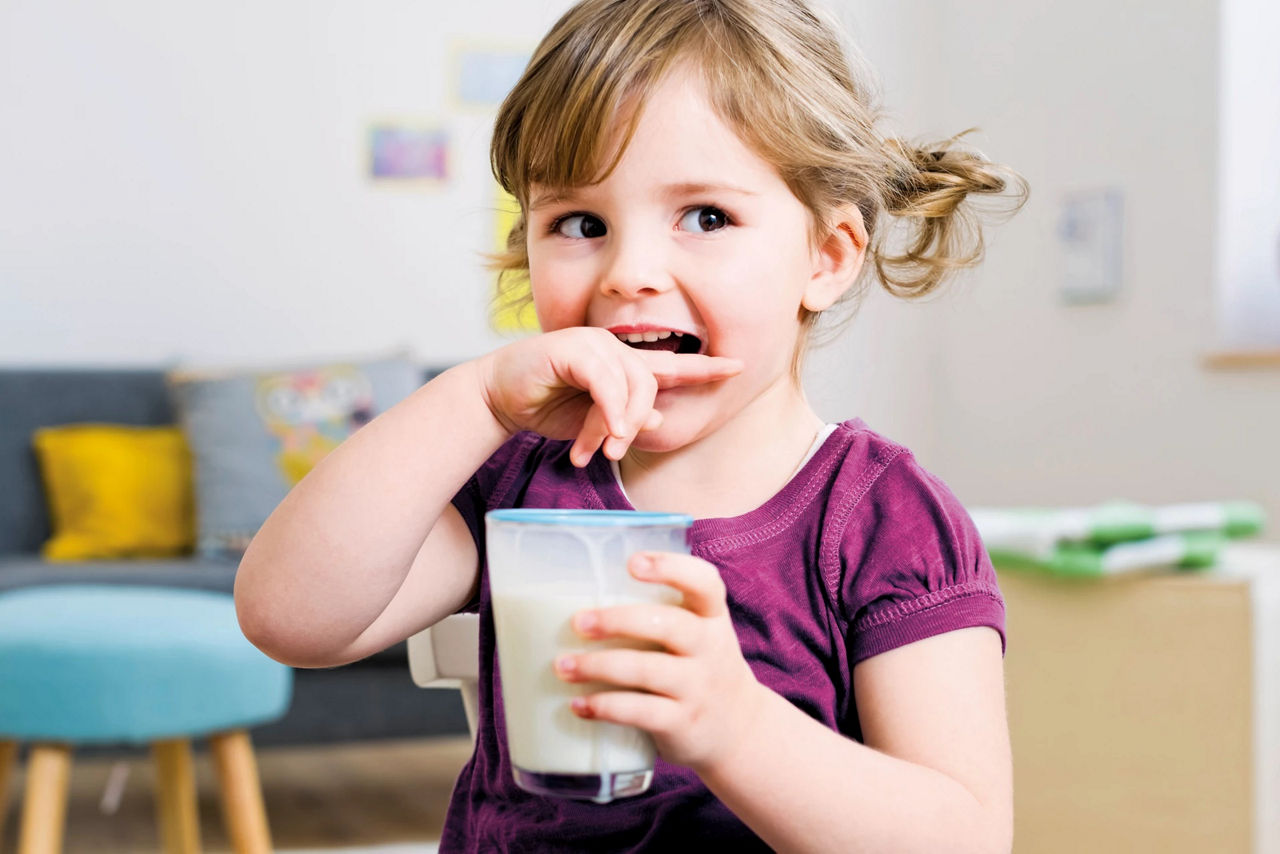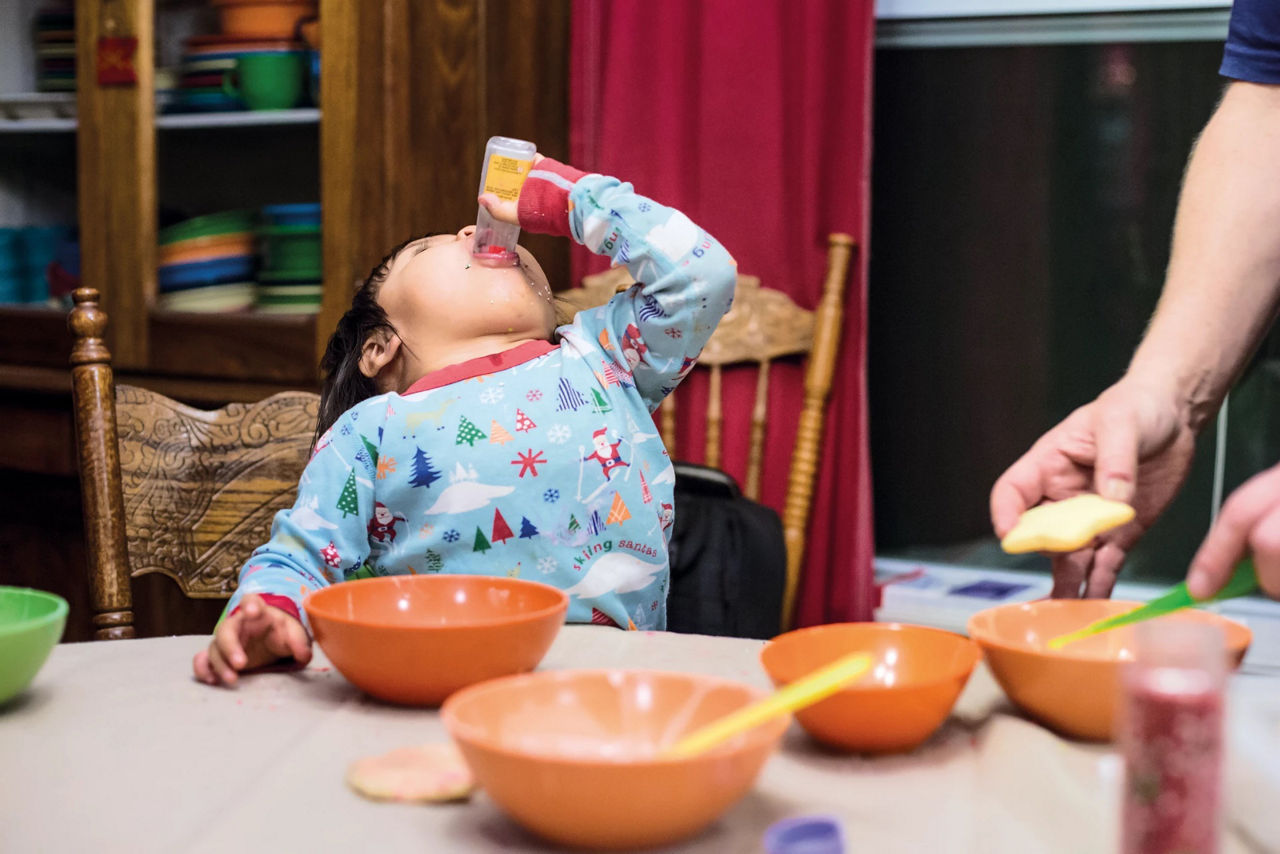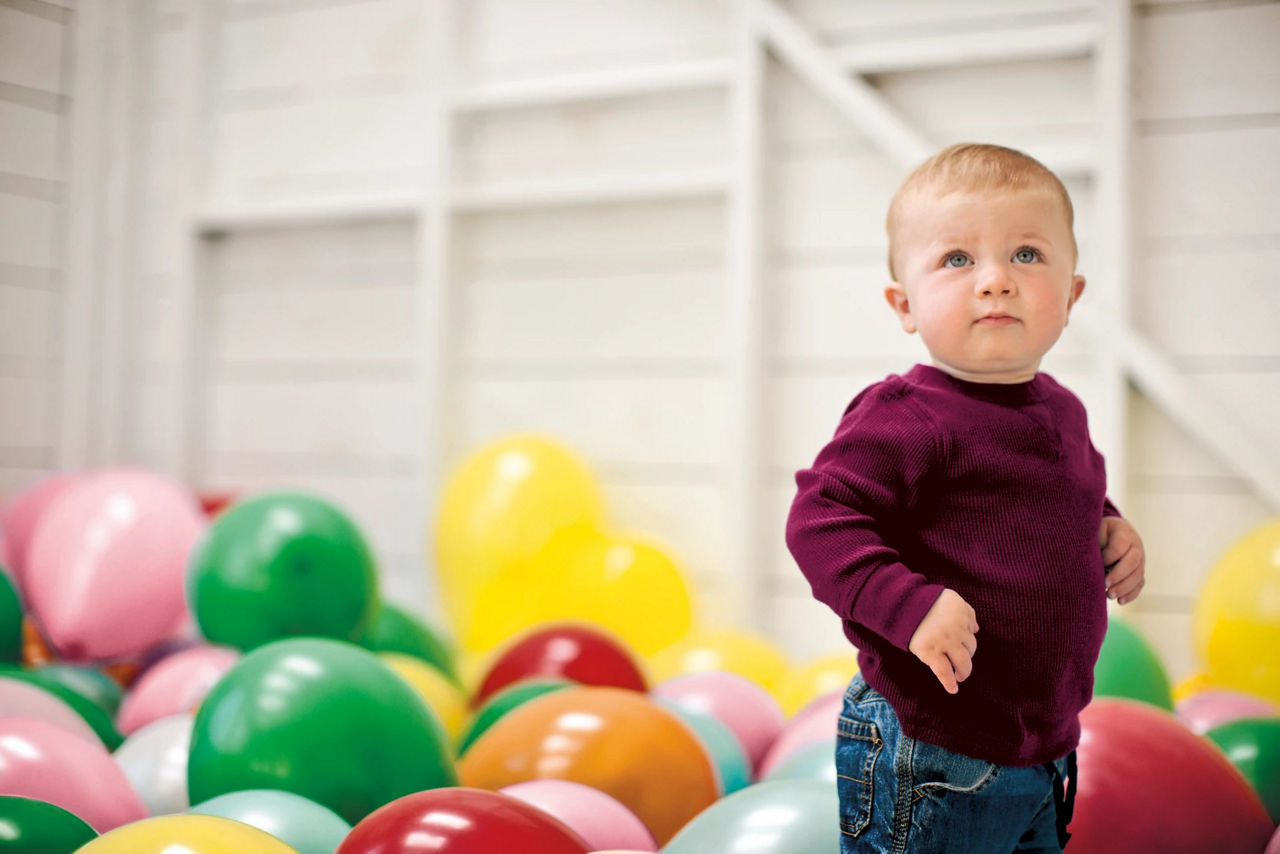Free weaning plan - Register here
It’s a big milestone when that first tiny tooth emerges, and surprising how quickly the rest appear. But just when you thought your toddler’s toothy grin was perfect, the back molars start pushing their way through. Although they may cause some discomfort, it’s a good sign of the healthy development that’s going on, and soon their smile will be complete! Here are some ways to ease the symptoms and keep those little pearly whites clean and healthy through regular cleaning and good nutrition.
The signs of toddler teething
The earlier you spot the signs, the sooner you can make sure your toddler gets through the arrival of a new tooth with a smile. They might be able to tell you in words or by pointing to their mouth. If they can’t tell you then here are some symptoms:
- Red, swollen or tender gums.
- Red, flushed cheeks or face.
- Loss of appetite and disturbed sleep.
- Grizzliness.
With a quick peek in their mouth, you may see some swelling under the gums. If you’re worried the symptoms may be a sign of something else it’s a good idea to talk to your doctor or health visitor.

What a relief!
At this age, teething shouldn’t be too painful, but your toddler might find it a bit sore at times. Giving them something cold to chew on can help to ease the discomfort when the new teeth come through.
Chilled slices of banana are delicious and incredibly soothing. A cooked chilled carrot straight from the fridge is good, and so are puréed fruits or a chilled fruit pouch.
If your toddler isn’t in the mood for food, then a chilled teething ring can help, or you could try some sugar-free teething gel. But what helps most of all is lots of love and cuddles! A few minutes of mummy-time can soon make them forget all about it.
Brushing up on teeth brushing
Brushing your toddler’s teeth is easier and kinder to their little mouth if you use a special toddler’s toothbrush. These have soft, round-ended bristles and a small, angled head. Specially-made toddler toothpastes contain less fluoride and are made with the knowledge that they are often swallowed, so are better choices than the ones adults use
A good way to reach all their teeth is to sit your toddler on your lap, facing away from you, and encourage them to recline into the support of one arm – a bit like a dentist’s chair. When they open their mouth, you should be able to get a good view and good access to all areas!
Brush using small circular movements rather than a see-saw action, to make sure the bristles don’t harm their delicate gums. Some toddlers are reluctant toothbrushers – but they will love to copy you. So if you do yours first, they’ll find it more fun – you could even let them have a go at brushing your teeth too!
A nutritious diet for a healthy smile
Toddlers need a wide range of nutrients for all the amazing physical toddler development that’s happening. And when it comes to teeth, calcium is top of the list.
Their main source of calcium is milk. And even if your toddler is drinking less milk these days, there are lots of toddler-friendly, calcium-rich foods you can serve up including cheese, yogurt and white bread.
Avoiding sugary drinks and snacks, especially before bedtime, will help to keep your toddler’s teeth healthy and clean as they grow. If you need inspiration for low-sugar and naturally sweet foods your toddler will love, our team of feeding advisors has lots of ideas to share. We’d love to hear from you.

Join our baby club
Ready to stop worrying about what other people think and do what feels right to you? We’ll give you the support you need to follow your instincts and enjoy parenthood to the max:
Helpful emails
Non-judgemental support
Free weaning plan
Tips from real parents
More from toddler
Toddler topics
Need free advice with a smile? Get in touch with our dedicated Care team.
Ask us a question (8am - 8pm Monday to Friday, 10am - 4pm Weekends)
Messenger
Contact us on Facebook ( 10am–10pm Mon–Sat, 10am–5:30pm Sun)
Call us
Call us on 0800 977 8880 (8am - 8pm Monday to Friday)
FAQs
Get answers to your most frequently asked questions




